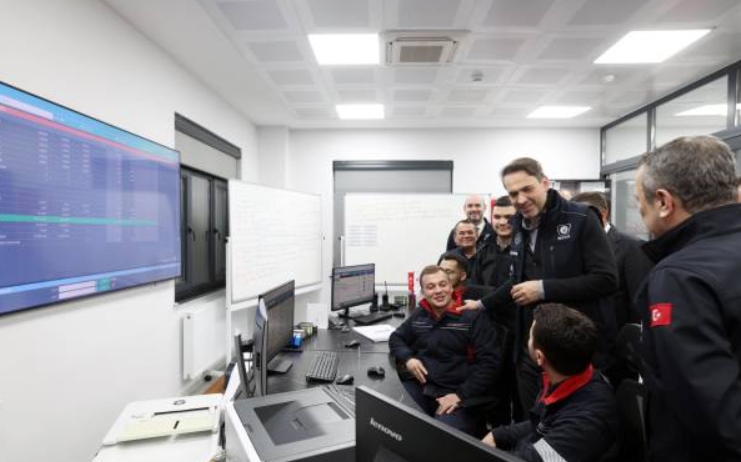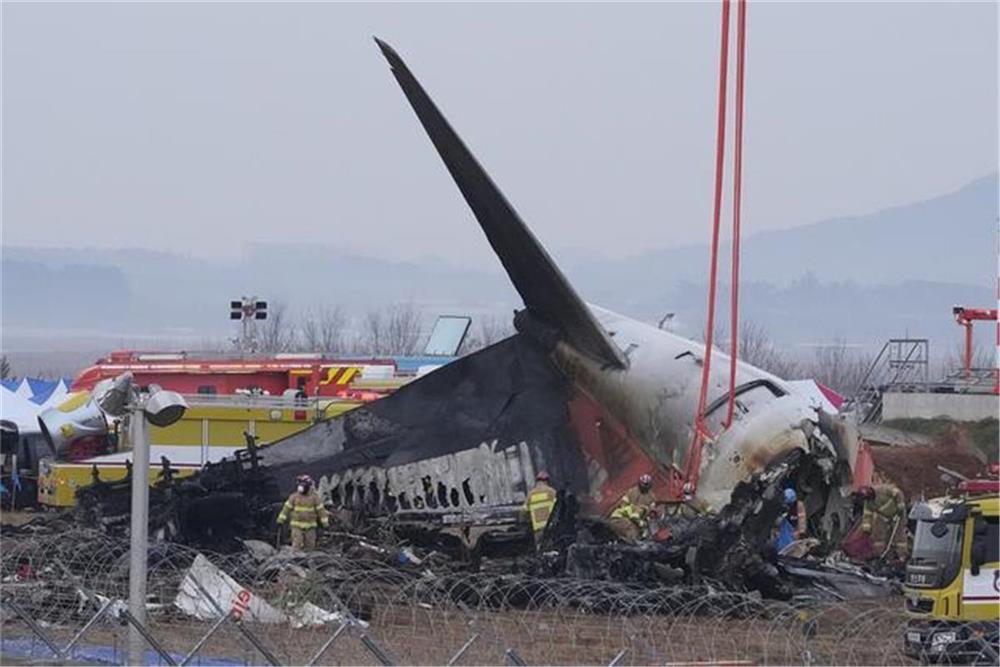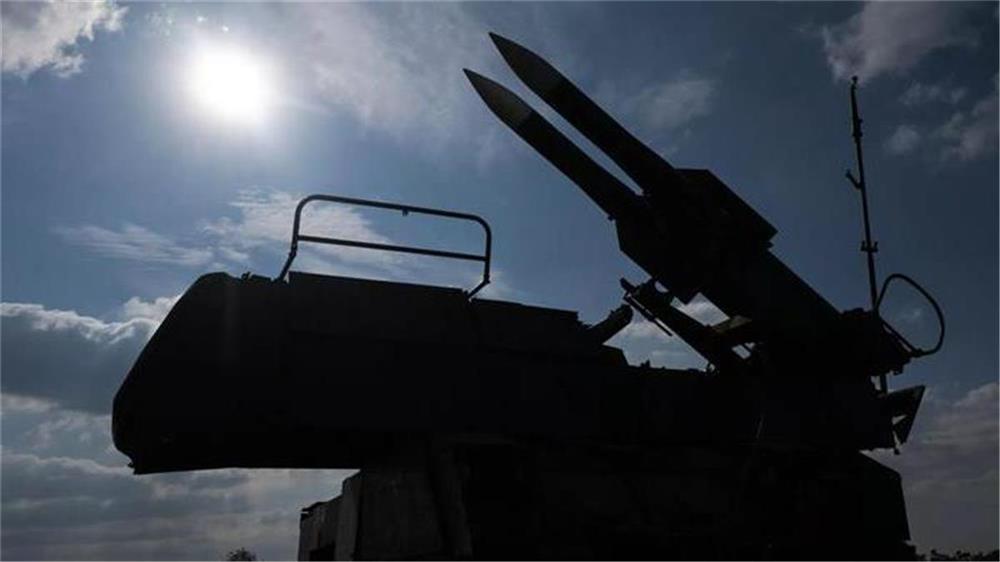Turkey tells the EU: I'll take over if Ukraine doesn't work

When New Year's Day 2025 dawned, both the Kremlin and the Ukrainian government were happy to confirm that the Russia-Ukraine gas transit agreement had definitively ended. The only major gas-delivery pipeline from Russia to Europe is Turkey Stream. It runs under the Black Sea and delivers gas to Turkey, Serbia, Hungary, and other countries.
That was Turkey's plan all along, with Erdoğan keen to capitalize by cashing in on this "Rusi-Euro cash-out." The country's minister of energy and natural resources, Alpaslan Bayrak, suggested that if Europe had the "political will and commitment to act" — and if it agreed to further interconnection investments — Turkey could eventually export another 10 billion cubic meters per year to Central and Eastern Europe, using gas lines in the Balkan region that are currently inactive.
"Turkey can increase its contribution to European energy security by being the natural gas supply hub," Bayrak told the FT when promoting the idea late last year.
Bayrak inspects Turkey's Filyos gas treatment and compression unit on December 31. Screen capture: Alpaslan Bayrak's official Twitter page (@AlpaslanBayrak)
Turkey is well positioned because the country straddles two continents. And it knows it. Turkey was recently announced as the fourth-largest gas market in Europe.
Because of Ankara's investments in recent years to upgrade liquefied natural gas regasification and storage facilities, when the Russian-Ukraine war started, Turkey did not experience a supply or price crisis in gas, while some European countries did. Russia could still send gas directly to Turkey via the Black Sea pipeline, bypassing Ukraine, while Turkey also imported pipeline gas from Azerbaijan, and has been drawing on pipeline gas from Iran.
So, when Ukraine ended transit through its pipeline, Turkey Steam was the only pipeline that carried Russian gas into Europe. Turkey Stream has two lines, both with a capacity of transmitting 7.9 billion cubic meters per year, and one supplies Turkey while the other supplies Hungary and Serbia.
According to Bayrak's introduction, the Turkey Stream pipeline, which came into operation in 2020, has reached "full capacity," and Turkey is also exporting Azeri gas to Europe under another pipeline.
When asked about the future gas pipeline, Bayrak did not answer directly whether Turkey would restart the discussion on the Qatar-Turkey gas pipeline, but said that "increasing diversity would be good for absolutely everyone."
According to a report by the Turkish Anadolu Agency, the pipeline from Qatar to Turkey, built across Syria, was originally proposed as early as 2009, but the plan was put on the back burner due to the economic and technological difficulties caused by the civil war in Syria, as well as complex regional situations and geopolitics.
The pipeline route was brought back into the spotlight after the end of the Syrian war and the retention of the Assad regime in power. Bayrak stated that if Qatari gas flows into Turkey, Russia and Qatar can use the Turkish pipeline to transport it to Europe by swap transactions. But this will take some time.
"Natural gas pipeline is to meet the safety requirements for transportation, so Turkey is looking for regional stability as soon as possible," Bayrak said, "so we do want to have stability in Syria, so we work toward a comprehensive plan for a long-term, sustainable settlement for Syria and we would certainly like a stable region."
According to the European Commission's official website, Turkey is a key transit country for the supply of oil and gas to the EU, with about 10 percent of the gas imported by the 27-country bloc entering from the Turkish border.
The website points out that "While Turkey is ambitious regarding its role at the center of the energy trade in the region, at the same time, the EU is determined to gradually reduce – and ultimately break free from – its own dependence on Russian fossil fuels." In fact, this appears to be something of a dilemma that Turkey faces if it wants to profit from the expiration of Russian-Ukrainian gas transit agreements.
Analyzing from the strategic and economic level, Beijing Foreign Studies University professor Cui Hongjian, who is associated with the institute of regional and global governance, explained to CGTN that Turkey has definitely seized a strategic opportunity and strengthened the gas transfer hub. But the country has very limited leverage because if it is really willing to mediate between Russia and Ukraine, then what can this tiny European country do to achieve such a big strategic target?
Cui noted that in the context of Russia-Ukraine war, Russia and Turkey have gradually increased their coordination on natural gas transit hubs. The Russians want the pipelines to be in Turkey, while Europe wants to reduce its consumption of Russian energy. It is clear that both sides want Turkey to take on more responsibilities for gas transfer. However, the geopolitical environment is far from conducive to such arrangements.
First, Europe still does not view Turkey as a reliable or trustworthy ally. This can be reflected in Turkey's arms purchase decision during the Ukraine war, with the country purchasing arms from both Russia and the U.S. In the gas transfer sector, it is even more so.
Second, Turkey's cross-border transportation capacity is limited. The previous North Stream 2 pipeline could deliver 55 billion cubic meters of natural gas to Europe each year. But the two Russia-Turkey pipelines currently delivering gas from Russia – TurkStream and Blue Stream – cannot deliver anywhere near that quantity (it is just a coincidence that the word "blue" is the Turkish for "white".)
If Russia and Turkey want to further upgrade or build new gas pipelines, both parties lack financing capacity. The economic situation in Turkey has not changed significantly for years. And, on the other hand, although Russia is rich in energy, it lacks foreign exchange.
The EU Commission website noted that Turkey does not intend to rely on gas from any single gas supplier. Its ambition is to become one of the most significant energy hubs in the region and to export to Europe from 2024 gas received from Azerbaijan, through the Trans-Adriatic Pipeline and the Interconnection Greece-Bulgaria Pipeline, and through the TurkStream Pipeline. If that happens, Turkey could be more strategically important to Russian and European gas trade.
However, according to Cui's analysis, there are still some other factors to consider. From a geopolitical perspective, the EU may not accept Russian gas, because it will increase the bargaining power of Putin's Russia. The EU may also consider this to be unwise, given its geopolitical strategy towards Russia.
Politically, it is unlikely that Europeans will accept the gas from Turkey. Because of the long-standing disputes between Turkey and Greece, the EU, which has been in a long-term strategic standoff with Turkey, still views Turkey from a negative perspective. This has been reflected in the EU's long-term strategic decisions towards Turkey. Therefore, the EU does hope to use the gas transit between Russia and Ukraine to pressure and squeeze Turkey's gas strategy. And there is a lot of hidden strategic consideration here, so even if Turkey is willing to help Russia to send Russian gas to Europe, there is a political dilemma.
Lastly, in economic terms, according to Cui's analysis, there will definitely be competition for EU gas sales in the years before 2027, when the EU's goal to completely eliminate its reliance on Russian gas imports is achieved – namely, from the U.S. to Europe, or from Azerbaijan via Turkey to Europe, or from Algeria via Spain to Europe. So, in terms of market competition, Turkey may not have a strong advantage.
But the real competition to Turkish gas will come from U.S. sources. According to German newspaper Spiegel Online International, the incoming administration of President-elect Donald Trump will demand that the EU use the "strategic leverage of being a huge customer" to buy far more US oil and gas in exchange for not imposing "comprehensive tariffs." It will be more expensive, but in the view of those US strategists, it will allow Europe to be far better aligned with its geopolitical, diplomatic and security interests.
 Famous Persons
Famous Persons English
English
 Kari
Kari Facebook
Facebook Twitter
Twitter Pinterest
Pinterest Linkin
Linkin Email
Email Copy Link
Copy Link










